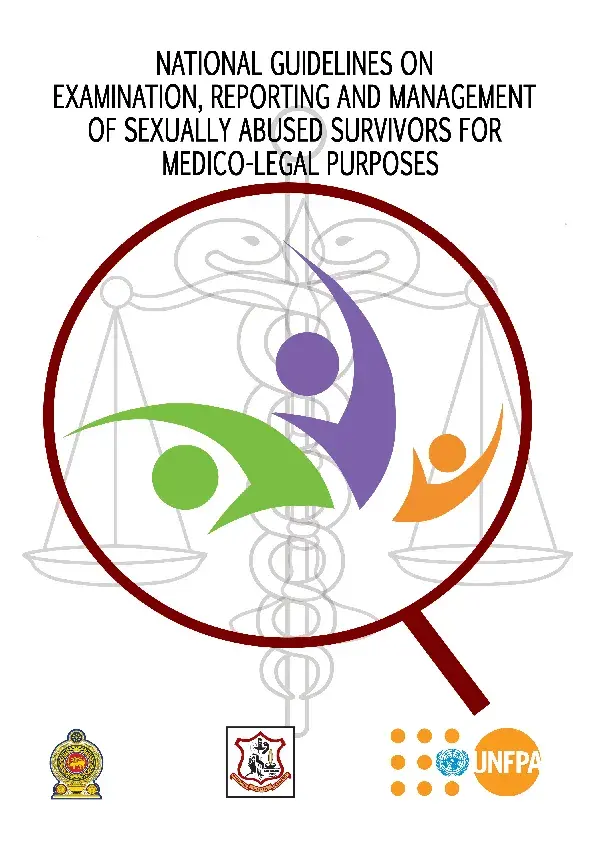Sexual violence/abuse in a society is considered to have the iceberg phenomenon where the majority of the problems are not surfaced while the exposed tip representing the cases reported to the law. According to the Sri Lanka police statistics sexual violence has been steadily increasing over the years and the recent data (2011) reports a total of 1870 instances of rape and incest and 517 instances of unnatural offense/grave sexual abuse1.
It is well documented that majority of the incidents are not reported to the authorities. According to the Criminal Code Procedure of Sri Lanka, a police officer investigating a crime of
alleged sexual abuse is expected to produce the victim as well as the alleged perpetrator to a government medical officer and obtain a report for evidential purposes. Although the purpose of this legal requirement is mainly to assist in dispensing justice, the health care needs of the survivors should not be forgotten. A government medical officer with a basic degree attending to medico-legal examinations of this nature usually gains his primary knowledge through the Legal Medicine Module and the Forensic Medicine clinical attachment, while the specialist training covers more in-depth knowledge, technical skills and delivering an expert opinion to courts.


